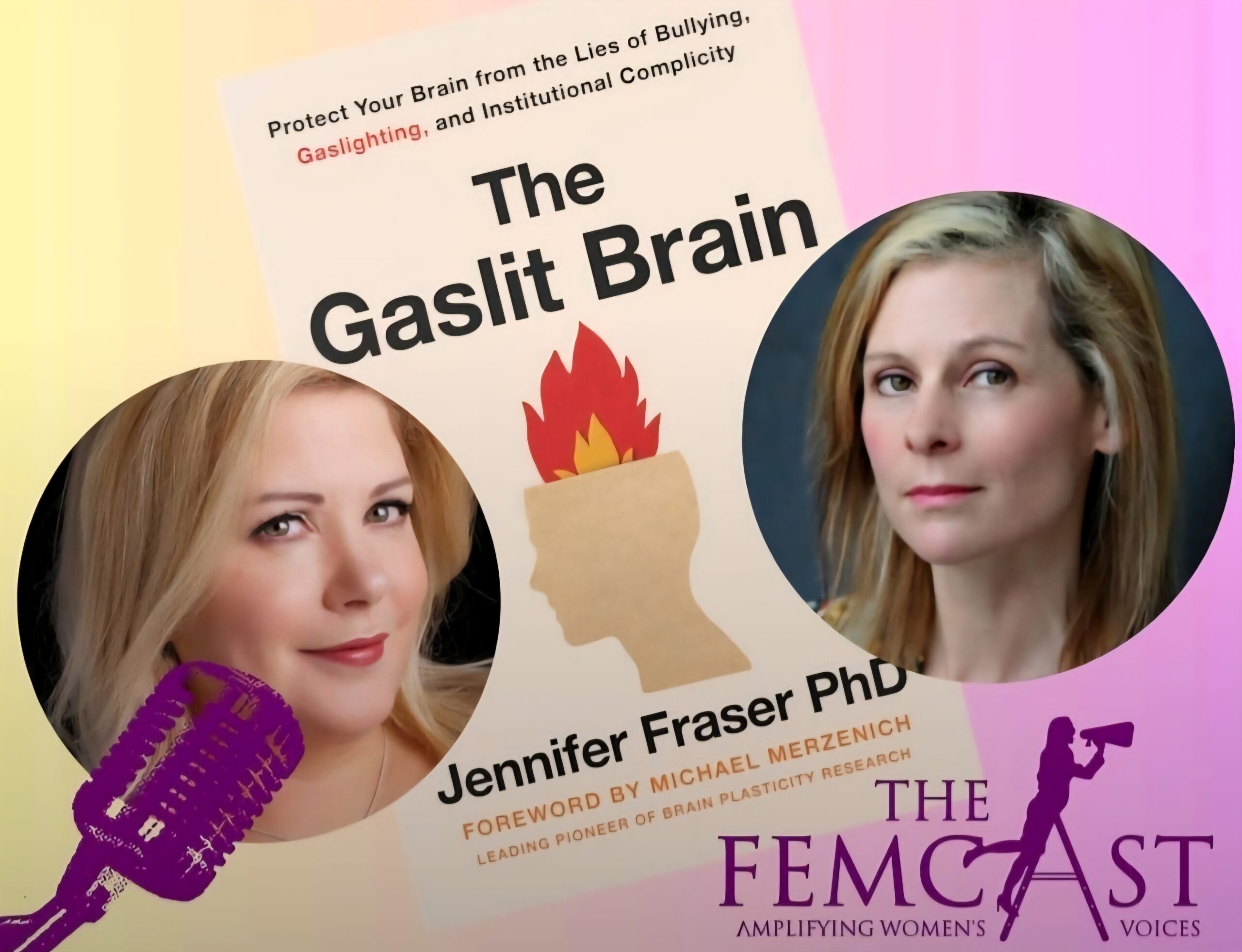What happens when you report abuse… and suddenly you become the problem?
When the spotlight swings away from the perpetrator and lands right on you — questioning your tone, your behaviour, your clothes, your motives?
That’s not an accident. It’s a tactic.
And it has a name.
DARVO: Deny. Attack. Reverse Victim and Offender.
In this week’s episode of The FEMCAST, Dr Jen Fraser and I pull the curtain back on one of the most insidious psychological defence mechanisms used by abusers — in homes, in workplaces, and in institutions that are supposed to protect us.
DARVO isn’t just something that happens in high-profile court cases or headline scandals. It’s the quiet, everyday manipulation that silences truth-tellers, punishes whistleblowers, and protects power.
Dr Jen Fraser — author of The Gaslit Brain — explains how DARVO operates like a virus in abuse cultures. It starts with denial: “It didn’t happen.” Then comes attack: “You’re unstable, difficult, overreacting.” And finally, the reversal: the victim is painted as the offender, while the abuser walks away untouchable.
We explore how DARVO destroys trust in institutions — from police forces to corporations — and how it seeps into our collective mindset. Why do workplaces punish people who speak up about harm? Why do we side with charm over truth?
Because as Dr Fraser reminds us our brains were not designed for manipulation. They were designed for survival, and survival sometimes means silence, dissociation, or freezing — not fighting back.
This conversation is uncomfortable. It’s raw. But it’s essential. Because once you can name DARVO, you start to see it everywhere — and once you see it, you can’t unsee it.
If you’ve ever been blamed for standing up, if you’ve ever doubted your own reality after being mistreated, this episode is for you.
Listen now:
Share this with someone who needs to hear it.
Let’s make “DARVO” a word everyone knows — so no one can use it against us again.
Subscribe to The FEMCAST and help us bring these critical stories to light. Each listener, each voice, and each story makes a difference. Together, we can break the silence.
If you enjoy our content and would like to support our research and work, consider buying me a coffee (by clicking links). Your contribution helps me continue creating this content. Thank you for your support!







